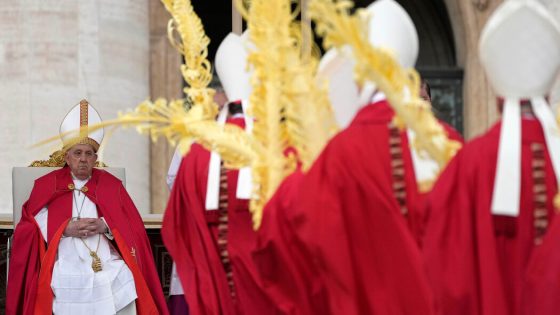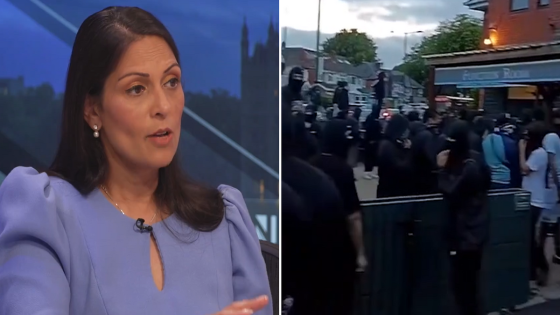As tens of thousands of faithful holding palm fronds in St. Peter’s Square looked on, the moment arrived in the Palm Sunday Mass for Pope Francis to deliver his homily in a service marking the beginning of Holy Week, one of the most demanding and significant on the Christian calendar.
“And now we hear the words of the Holy Father,” said the commentator on the Vatican’s media channel.
Instead, the crowd outside and all of those tuning in heard Francis breathing and the wind blowing over the square, as the pope, 87, decided at the last moment to forgo the homily, the sermon that is central to the service, and remain silent.
Francis’ choice to skip the strenuous speech at the outset of a week that culminates in the Easter celebration of the resurrection of Christ amounted to a highly unusual move that immediately raised concerns about the pope’s health, which is increasingly frail. In recent years, he has undergone an intestinal surgery, moved to a wheelchair and often has respiratory problems.
In recent weeks, Francis has often turned his speeches and teachings over to an aide to read aloud.
But Francis spoke in a clear voice before and after the skipped homily, celebrating the liturgy and delivering prayers, including his closeness to the victims of Friday’s terrorist attack in a Moscow suburb, and to the entire country of Ukraine, which he again called “martyred.” But given the pope’s health woes, most recently a seemingly emergency visit to a Rome hospital to check out his lungs, his silence spoke volumes.
Francis, who rarely walks now because of his bad knees, did not participate in the Macbethian procession of cardinals around the obelisk in St. Peter’s Square, and instead blessed them from the altar.
Palm Sunday is the first event in a busy week that includes his washing-of-feet ritual in a women’s prison, his presiding over a nighttime procession commemorating the Way of the Cross at the Colosseum, a nighttime Easter Vigil at St. Peter’s Basilica and the Easter Sunday Mass in the square, when the pope delivers a major blessing from the loggia overlooking the faithful.
Don Guido Colombo, a priest commentating for the Vatican’s official media channel on Sunday, immediately sought to frame the pope’s decision for a “moment of prayer and silence” as a spiritual, not physiological, necessity.
“Silence is not an absence,” he said, adding, “Silence is important.”
The Vatican did not immediately return a request for comment.
The pope’s silence, whatever its motivation, did seem to draw more attention to the words he did say.
He extended his prayers “to the victims of the vile terrorist attack carried out the other night in Moscow,” saying that he hoped the Lord would comfort and bring peace to their families and “convert the hearts of those who plan, organize and implement these unhuman acts, which offend God, who commanded, ‘Thou shalt not kill.’”
Francis also prayed for all of those suffering because of war, “especially I think of martyred Ukraine, where many people find themselves without electricity because of the intense attacks against infrastructure, which, beyond causing death and suffering, bring about the risk of a human catastrophe of even greater dimensions. Please, don’t forget martyred Ukraine! And let us think of Gaza, which suffers so much.”
At the end of the service, Francis descended to greet cardinals in his wheelchair. Far from winded, he seemed chatty and in good spirits as he shook hands and laughed with the prelates. He then got in the top of the open-backed popemobile and took a prolonged spin around the square, smiling and waving as some in the crowd shouted, “Long live the pope.”
Source Agencies



